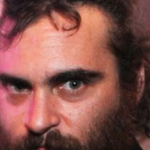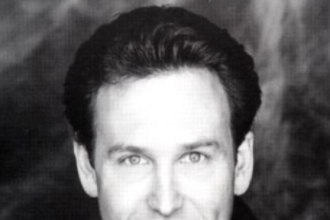Cannabinoid products like CBN oil, CBD lotions, and THC gummies have gained a lot of popularity among people because of their potential health benefits. This has opened a gateway for a new industry to flourish in the health and wellness space.
Celebrities have jumped on this bandwagon, seeing the potential for growth and the cash cow it can become in the long run. Starting a cannabinoid or weed brand requires an influx of money and lots of marketing and publicity; celebrities have both of these.
Plus, with their influence and connections, it gets much easier for them to enter this business. From Mike Tyson to Snoop Dogg to Kardharshians, many have launched their own cannabis-based brands. But it seems like the impact so far has been limited. Today, we will explore all the factors contributing to this low impact in detail.
What Factors Contribute To The Limited Influence of Celebrities on the CBN Industry?
Some reports suggest that the cannabis business might reach a $46 billion valuation by 2025. But sales for exotic products like cannabinoid-infused beverages, specific strains named after stars, or their photo- or slang-printed rolling trays have stayed relatively low.
Why? Well, for starters, most common people can’t afford the CBN tincture for sleep sold by a well-known celeb at absurd prices. Many people just need an affordable product that can help them get by with their day-to-day activities, make them relaxed, help them sleep better, and reduce their pain without putting a dent in their pocket.
Common folks just can’t relate much to whatever new kush roll or CBD oil their favorite rapper has rolled out at double the price of what they can buy from their local dispensaries or trusted online brands like Colorado Botanicals.
Plus, the market is already way too saturated. It’s like a new CBD, CBN, or pot brand pops up on the web. As per a report by Adweek, more than 2000 CBD brands sold their products in 2021 in the US alone. There are way too many choices; buyers just get confused and mostly go with what’s more convenient and pocket-friendly for them.
This has resulted in low sales growth for many celebrity brands, as their unique and exotic products only get much acceptance in the very affluent or high-spending sections of society.
It’s true that celebrity brands get a lot of media attention and good publicity, but many retail store owners have found that most people don’t really care about the celebrity name attached to the products. The entry of Celebrity brands hasn’t increased the competition at all; the highest-selling Cannabinoid products are almost always from non-celeb-backed brands.
Are There any Exceptions?
Yep, it’s not like all celebrity marijuana, CBD, and CBN brands are just bleeding money. For example, “Martha CBD,” the CBD company launched by the well-known businesswoman and writer Martha Stewart, has seen a large-scale acceptance among the common folk. In its initial days, the brand even outsold its various competitors, and the customer retention rate remained terrific.
Another successful pot entrepreneur is Mike Tyson. The former boxing champion had a very vast impact on people from different sections of life throughout his career. His brand does well with sportspeople, specifically. Plus, he actually shows a genuine interest in making the products.
Mike has invested in and developed hemp and cannabis farms on his own land; there’s a resort and even dedicated research centers there. When a celebrity goes up and beyond like this to launch something, it often does well in the long term. People feel a sense of trust when using cannabinoid-based products sold by Mike Tyson.
One noteworthy example is Whoopi Goldberg. The activist and actor launched a cannabinoid-infused product line specifically for women to deal with pain and other discomfort issues during menstruation.
This was a unique idea targeting a niche but wide audience group; hence, it did very well in terms of sales. Women were able to resonate with Whoopi’s own experience of using CBD, CBN, or other cannabinoid-based products to manage pain during such times.
Similarly, brands like Willie Reserve, Marley Naturals, and Tommy Chong’s Cannabis actually do slightly better in terms of growth and sales. Why? Because they were founded by people who spent their whole lives voicing for the legalization movement. This gives users a more sentimental value in choosing their brands over some new hotshot celeb who just became famous through one viral song or reel and launched the brand out of nowhere.
What Are Some Major Barriers With CBN?
There’s still too much restriction in terms of advertising and regulations in the cannabis industry. The farm bill was passed in 2018; it’s 2024 now, and still, each and every state has different laws and regulations around hemp and marijuana-based products. The lack of proper rules and regulations on the federal level and the complex web of rules and regulations different from one state to another have made it quite difficult for brands to thrive, let alone start a new one in this space.
Then there’s the advertising issue. You can’t outperform already established brands just by becoming popular among your fan group. To beat the competition, you need to get your brand’s name out there on a large scale.
But marijuana is still illegal on a federal level, which means you can’t promote it through radio or TV advertising. Hence, usually what happens is that a new weed brand comes out from a celebrity, becomes popular for a few days among their fan group, and then the hype goes down and it struggles to generate revenue.
Sometimes celebrities even get fined for promoting cannabis products. In 2019, the Federal Trade Commission gave out warning letters to many companies and celebrities, like Bella Thorne and Naomi Cambell, for failing to disclose their paid endorsement of cannabinoid-based products on social media.
The Final Note
To sum it up, celebrity cannabinoid brands often struggle to become established players in the cannabis industry. This happens for a variety of reasons, including overpriced products, difficulty in advertising, a lack of federal regulations, and a negligible connection in terms of what common people expect.
This leads to a quick boost during the launch because of lots of PR power and then fizzled-out sales once the hype dies. Also, there are already too many companies in this space; the competition is too high for new brands to make space for them, even if it’s a celebrity brand. Most common folk just go with affordable and highly reputable brands like Colorado Botanicals, as they provide much better service and high-quality products made with clean and organic ingredients.














